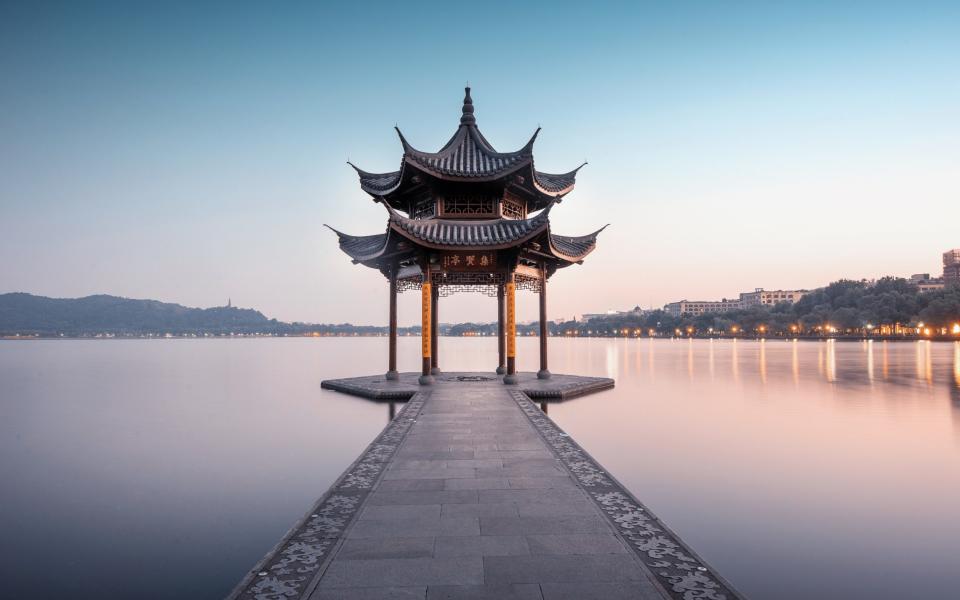Richard Osman: The more you travel and meet people, you realise it's a very interconnected world

Visiting China didn’t just change the way I look at China – it changed the way I look at the whole world. My daughter has been studying out there, so I’ve visited three or four times in the past five years. It’s an extraordinary country in every way, but what has really blown my mind is the fact that they like my Thursday Murder Club novels over there.
At first I found that very intriguing because the books [in which a quartet of 70-somethings at a retirement home in Kent solve murders] seem so very, very British – with their constant references to Dairy Milk, the National Trust, Ryman’s, the Hairy Bikers and so on – but I now realise that across the planet, we all have a lot more in common than I thought.
My favourite place in China is Shanghai: it’s the perfect entry point to the country for Westerners. That city has packed so much history into the past 175 years, much of it brutal and bloody: the opium trade, gangsters, Communism, the Cultural Revolution. In terms of things to see, you have all the obvious sights – the ancient Yu Gardens, the markets of the French Concession, the Colonial-era architecture of the Bund – but what I loved most was the Propaganda Poster Art Centre, where I bought an incredible original 1960s poster where Mao explains that American nuclear weapons are pretty much harmless and really nothing to worry about.
I also love Nanjing, a city in the south of the country, which is the old capital; and Beijing, which is a bit more austere, but with some fascinating history; and, of course, the Great Wall. Hangzhou is very beautiful too: it’s a lovely, much less Westernised, city of Buddhist temples and traditional wooden bridges set around these very serene, ancient lakes.

What really changed my outlook in China, though, was meeting the Chinese. My daughter has been studying Mandarin, and being there with someone who speaks the language means you can get much more immersed in the place, and really meet its people. She gets such a welcome wherever she goes, and the locals love to take pictures with us because she’s six-foot tall. It’s important to understand the Chinese way of looking at things, because of course China owns half the world now, and it’s certainly not going to get any less important over the next 50 years.
It’s a country with a fascinating past, but also a fascinating next 30 or 40 years ahead of it, that’s going to affect the whole planet – and I knew nothing about it before, but at least I feel like I know a little bit about it now. And I’ve got that by speaking to ordinary people out there. That’s why those trips to China made me look at the world in a different way, because I’ve found that the more you see the planet and meet actual people, instead of just seeing things on the news or reading about the governments of other countries, the more you realise how much we all share.
And guess what? It turns out people in other countries think we’re as strange and exotic as we think they are. So it’s partly that very Britishness that makes my books popular abroad. If we read a novel about South America, we want it to have lots of detail about South America so we feel immersed in that culture and come away saying: “Ooh, that felt so foreign and exotic.” I guess it’s the same if you’re Chinese and reading about my Thursday Murder Club character Joyce getting upset that there is no Oliver Bonas at Ashford International – you’re saying: “Ooh, that feels so authentically and excitingly British.”

The books are published in 15 countries now, including China, Germany, Russia, Brazil. In fact, I was number two in Brazil a few weeks ago – and it’s nice that the Russians are now joining in on such very British debates as to whether Tunbridge Wells needs a Waitrose.
Amazingly, publishers change very little for the international editions (and Steven Spielberg, who’s bought the film rights, plans to keep it set in the UK). The US version of the book only changed two things: John Lewis, because that was the name of a civil rights activist there, and a bit where one of the characters, Ron, goes into the woods “for a slash” which confused them a lot as they thought it meant he was knifing someone.
I wasn’t a very adventurous traveller before going to China, but now I’m so looking forward to going to all these places I haven’t been before. I’ve learned, thanks to my Chinese trips, that it’s a very interconnected world.
As told to Ed Grenby
Richard Osman’s second Thursday Murder Club novel, The Man Who Died Twice, is out now (Viking, £18.99)


